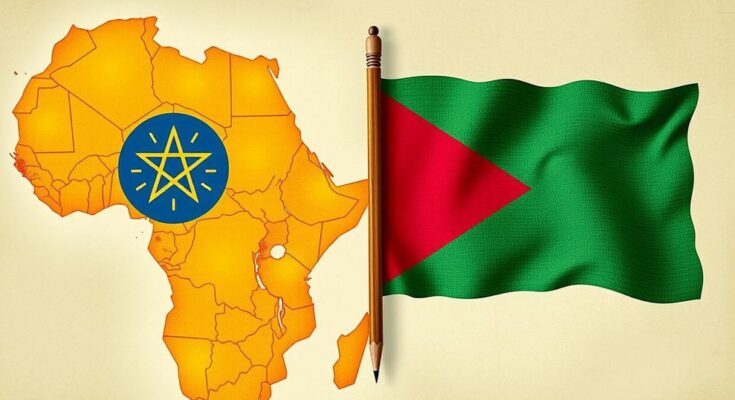Ethiopia and Somalia have agreed to technical talks mediated by Turkey to resolve disputes stemming from Ethiopia’s deal with Somaliland. The negotiations, set to begin in February, aim to ensure Somali territorial integrity while accommodating Ethiopia’s desire for access to the sea. Somaliland’s bid for recognition amid its political stability adds complexity to the discussions following Ethiopia’s recent agreements regarding land leasing for a military base.
On Wednesday, Ethiopia and Somalia announced their agreement to initiate “technical talks” to address the tensions that emerged from a recent deal between Ethiopia and the self-declared republic of Somaliland. This agreement followed diplomatic discussions mediated by Turkey, highlighting the ongoing complexities in the Horn of Africa. The talks aim to resolve disputes related to Ethiopia’s memorandum of understanding with Somaliland, which includes land leasing for a marine military base, and acknowledges Somaliland’s claimed right to independence, contrary to Somalia’s stance on territorial integrity.
The joint declaration, reached after meetings between Turkish President Recep Tayyip Erdogan, Ethiopian Prime Minister Abiy Ahmed, and Somali President Hassan Sheik Mohamud, emphasizes respect for Somalia’s territorial claims while acknowledging the potential benefits of Ethiopia’s access to maritime routes. Ethiopia seeks reliable and secure access to the sea while the discussions seek to finalize mutually beneficial commercial agreements.
Somaliland has operated with relative stability for over three decades, contrasting Somalia’s ongoing challenges with militant violence. The region’s political climate remains complex, with Somaliland’s recent presidential elections furthering its quest for international legitimacy, despite not being recognized by the African Union or the United Nations. Erdogan remarked upon the significance of the newly proposed negotiations, alluding to the prospect of enhanced cooperation in the region.
Prime Minister Abiy Ahmed reiterated, “Ethiopia’s aspiration for secure access to the sea is a peaceful venture and one that would benefit all our neighbors,” underscoring the potential for collaborative regional growth. His counterpart, Mohamud, acknowledged the fragile state of the Horn of Africa and the necessity for regional cooperation to ensure stability and mutual benefits.
The conflict between Somalia and Somaliland stems from Somaliland’s declaration of independence from Somalia more than 30 years ago, a claim not recognized by the Somali government or international bodies such as the African Union and the United Nations. Ethiopia, in a bid to secure strategic maritime access, recently entered a memorandum with Somaliland that has exacerbated political tensions with Somalia. The ongoing instability in Somalia, attributed to the actions of militant groups like al-Shabaab, further complicates the regional dynamics. As Turkey plays the role of mediator, discussions are now focused on balancing territorial claims and economic collaboration, marking a critical juncture in East African geopolitics.
The agreement between Ethiopia and Somalia to pursue technical talks represents a significant diplomatic effort to address tensions related to Somaliland’s autonomy and Ethiopia’s maritime aspirations. This dialogue aims to foster regional cooperation while honoring Somalia’s territorial claims and facilitating mutually beneficial arrangements for maritime access. In the face of continuous instability in Somalia, the success of these discussions could herald a new phase of collaboration in the Horn of Africa.
Original Source: www.taipeitimes.com




